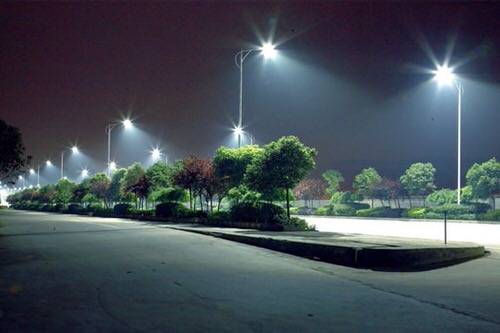Vodafone has announced a partnership with Philips Lighting, a subsidiary of Royal Philips, that aims to enhance the company’s LED street light management system.
The mobile carrier will provide an Internet of Things (IoT) network – in the form of an machine-to-machine (M2M) SIM card – inside every street light. The SIM card will provide engineers and managers with key information on the street light, and also allow them to monitor, manage, and identify faults in the grid or a single street light.
It is not the first time Vodafone’s M2M network has been used. In one example, Vodafone launched smart bins in a city that alerted the refuse fleet only when the bin was nearly full, reducing the amount of emissions by 18 percent.
Vodafone hasn’t announced which cities yet
Philips already provides a street light management system, which has been adopted by Los Angeles, London, and Madrid, but Vodafone’s M2M network provides more information on each individual street light.
“Just less than 12 percent of the world’s street lights are LED and less than two percent are connected. We are at the start of a new era which will see highly energy efficient connected street lighting become the backbone of most smart cities,” said Philips Lighting head of strategy and marketing, Bill Bien. “Robust and reliable wireless connectivity will help make this happen, linking streetlights with sensors, devices and management systems.”
See Also: The Hue and Cry Over Philips’ Not-So-Smart Move
In the press release, Philips Lighting and Vodafone did not make it clear what cities will be first to receive the M2M network. The system is operational in a few big cities, and it may take some time for a SIM card to be installed in every street light.
Philips Lighting claims that cities save 70 percent more energy when using the street light management system, and it we might see further savings once Vodafone activates its M2M network. The Climate Group backs Philips up, supporting the global rollout of LED street lights that would reduce CO2 emissions by 52 percent.


















